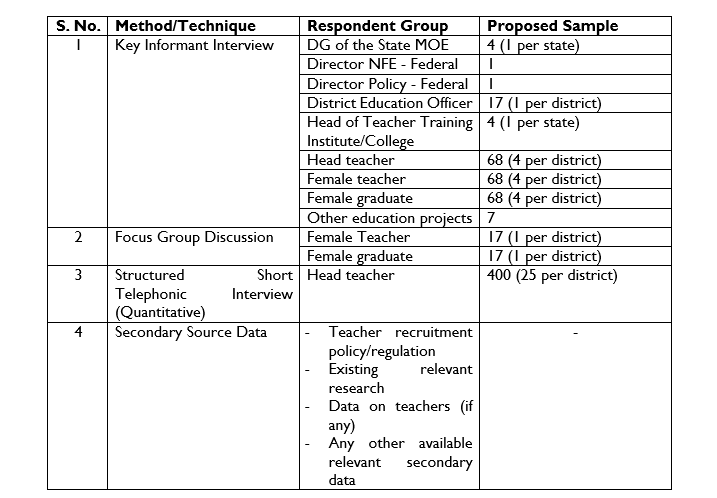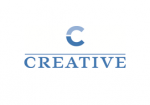Job description
Scope Of Work
Education Research Specialist – International Consultant
Creative Associates International is a dynamic and fast-growing professional services firm that specializes in international development in the areas of education, democratic transitions and stabilization in post-conflict environments. Based in Washington, DC, the firm has a field presence in 30 plus countries worldwide with a strong and diverse portfolio that includes global contracts with the U.S. Agency for International Development (USAID) and other clients including the U.S. Department of State and the U.S. Department of Defense. The firm has earned a solid reputation among its clients and missions worldwide and is well-regarded by competitors and partners alike.
1. Project Description
The Bar Ama Baro (BAB) is a five-year USAID-funded accelerated primary education project designed to support the Government of Somalia in providing quality Accelerated Basic Education (ABE) services to marginalized children across the country. Through working at both the national and local level, BAB is systematically and strategically assisting government and community actors in designing and delivering comprehensive, inclusive ABE to children most in need of accelerated education assistance. The program is directly supporting the Somali Government in the national policy and national ABE program design, while currently rolling out implementation in eleven districts. The programs key performance areas are: IR1: Enrollment in AEPs increased; IR2: Safety of AEP learning environments improved; IR3: Student learning outcomes in AEPs improved; IR4: Government capacity to regulate AEPs enhanced; and Cross-Cutting Themes: Youth civic engagement strengthened.
BAB operates in three Federal Member States of Southwest, Hirshabelle and Jubaland as well as Benadir Regional Administration. The project currently operates in the following 18 districts:
· Southwest State: Baidoa, Dinsoor, Wanlaweyn, Baraawe, Marka, Afgooye and Berdaale districts.
· Hirshabelle State: Jowhar, Balcad, Mahaday and Warsheekh districts.
· Jubaland State: Kismayo, Baardheere, Jamaame districts.
· Benadir Regional Administration: Xamarweyne, Shibis, Kaxda and Dayniile districts.
The demographic composition varies in the districts in which the project is being implemented. Most households are headed by women (60 percent). Overall, 36 percent of households in BAB’s focused communities are internally displaced people (IDPs). The highest percentages of IDPs reside in Baidoa (89%), followed by Daynile (88%), and Kahda (81%). 10 percent of households in BAB districts are nomads. One in three households surveyed in Barawe and one in five in Jowhar is an IDP family. Balcad, Hamarweyne, Wanlaweyn, Shibis, Dinsoor and jowhar have the highest number of host community respondents. Approximately 54 percent of BAB’s target population speak Maxaa tiri as their mother tongue, while 40 percent speak the Maay dialect. Other minority languages such as Af Baraawe (Chimwiini), Bajuuni, Dabarre, Garre and Jiida dialects are found in small percentages across the target districts. More than half of the schools targeted by the project are located in the large urban areas of Mogadishu, Kismayo and Baidoa.in the area focussed by BAB, 46 percent of the households reported their children had no access to education. children and youth did have access to education. Barawe, Xamarweyne, Kaxda, Diinsor and Wanlaweyn were among districts where household reported no equal access to education for their children i.e. 90, 70, 64, 57 and 54 percent respectively.
2. Contextual Background
The Somali education system has a mix of centralized and decentralized functions. The education system is part of a Federal Government arrangement and continues to evolve as the Federal model evolves in the country. The FGS MOECHE manages the entire sector and is responsible for overall guidance and administration of education in Somalia. At the Federal Member State (FMS) level, the education sector is managed through state level ministries of education in each FMS. Under each FMS, there are Regional Education Officers (REOs) responsible for managing the education sector in their respective region. Under each REO, there are a number of District Education Officers (DEOs) who are also responsible for managing the education sector in their respective districts. In addition to the FGS and FMS MOEs, management of the education sector is also divided between the public, community and private sector. In the context of Somalia, non-state actors are the most prominent providers of education in the country with 76 per cent of primary students being enrolled in schools managed by the private sector/non-state actors.
Increasing basic literacy and numeracy has been a priority for the MOECHE at federal as well as FMS’ levels. Somalia has one of the lowest gross enrollment rates in the region with only 33%1 school-aged children enrolled in primary education and 27% in secondary education2. Enrollment is concentrated in urban areas (60% in Mogadishu and 55% in other urban), followed by rural areas (12%). Enrollment in IDP camps is the worst recorded in the country. Survival rates to Grade 5 are 64%, and only 9% enter secondary education, indicating a large portion of children drop out-of-school and do not complete the full cycle of primary education. Survival rates are much lower for children from poor households, rural children, girls and children from marginalized communities. Current data indicates that over 3 million children and youth aged between 6-18 years are out-of-school in Somalia. Only about 3 % of nomadic children and 17% of IDP children5 are enrolled in school.
In Somalia, two of the major challenges in education are access to schooling and quality of the education in the schools. Due to limited public schools, private schools and community schools fill in the gap in schooling, however, quality of education in these school remains a question unanswered.
The 2016–2017 period saw a steady increase in the number of children enrolled in school at all levels, with a sharp decline in 2019, possibly because of the strong drought period in 2017, and with a strong recovery in 2020. The progression in the number of enrolled children in public schools has shown improvement from 2019 to 2020 at all levels, with 38 per cent of all schools in the five FMSs being public or publicly supported in 2020. The level of the recovery from the 2018 drought varies by educational sub-level, as does the drop in 2019. As a consequence of the low access and high dropout rates, Somalian children expect to receive an average of 1.72 years of school in their life-times, with considerable disadvantage suffered by girls, who are expected to receive 1.48 years of school compared to 1.95 for boys. Males dominate the teaching profession, with females representing between 12 and 18 per cent of the total number of teachers at the primary level, and less than 5 per cent at the secondary level. However, there is seen to be an influx of young females into the profession, particularly at the primary level, in recent years. Across both genders, the vast majority of primary teachers are young, with most being under 24, while at the secondary level, they are more evenly distributed across age groups.[1]
3. Research Rationale
Women’s participation in every field of life is key to the development. Esp. in contexts like Somalia, where traditions and norms hinder girls to access education and play their active role as partner of men in development. As mentioned above, teaching profession is overwhelmingly dominated by men. This is not only restricting women’s participation in a key sector development, but also deprives girls to see women as role model in teaching profession. Fewer women in teaching profession indicate high gender disparities in the education system.
It is important to know about the root causes of women’s low participation in teaching profession, BAB intends to commission research that can generate a body of knowledge that can be used by the MOECHE, BAB and other developmental partners to address the issues of women’s low participation in education as teachers esp. in primary.
4. Research Questions
The broader research question for the study is:
- What are the push and pull factors for women’s in opting the teaching as profession esp. in primary education? This can be further explained as:
o State, Region and District level comparison of female teachers in primary education.
o Barriers and challenges hindering women to join as teachers.
o Opportunities that can encourage women to become teacher in primary education.
Based on discussions with the BAB team, the research question can be further explained or broken up into specific research questions after the award of contract.
5. Research Methodology
For this research, mixed research approach will be adapted. The research will apply following quantitative and qualitative methods:
[1] Education Sector Assessment 2021

The key information interviews will be very specific and precise enough to collect the data to provide answers to the research questions. Considering accessibility issues in Somalia, some KIIs may be conducted through telephone.
1. Specific Tasks
Creative is seeking the services of an international consultant – Education Research Specialist (35 days input), to conduct the research for BAB. Key tasks of the consultant will include, but not limited to, the following:
i. Work together with the principal investigator on the research.
ii. Design the research and finalized the design based on inputs from BAB.
iii. Coordinate closely with the data collection as and when required.
iv. Train the national team leader data collection from primary and secondary sources.
v. Clean, analyze and interpret the data to respond to the research questions.
vi. Draft the research report and finalized based on feedback from BAB.
vii. Present the research findings to BAB stakeholders jointly with BAB.
viii. Support BAB in publishing the research in renowned educational research journal(s) by identifying the possible journals.
ix. Adhere to applicable policies and regulations per USAID and Creative systems.
2. Responsibilities of BAB:
i. Engage the national consultant for data collection (primary and secondary).
ii. Ethical approvals for the research.
iii. Oversee the data collection process.
iv. Provide data sets (translated in English) to the Education Research Specialist.
v. Review and approve the deliverables.
vi. Ensure timelines for the deliverables are met.

1. Responsibilities of BAB:
i. Review the deliverables and respond back not later than one week.
ii. Facilitate the consultant in coordination with the MOECHE as necessary.
iii. Obtain ethical approval for the research.
iv. Facilitate in technical discussions with stakeholders.
v. Settle payments of the consultant per agreed payment schedule.
vi. Provide any other support that is beyond the scope of consultant and necessary for commissioning and successful completion of the research.
vii. Monitor data quality and compliances.
8. Duration of Consultancy:
Expected Start Date: June 20, 2022
Expected Completion Date: August 31, 2022
Skills and qualifications
i. PhD with 3 years’ extensive research experience a principal investigator or lead, or master’s in education or social sciences with minimum 5 years’ extensive research experience in conflict settings, preferably in Somali, is required.
- At least three research designed and conducted. Research in education sector will be preferred.
- Must be well-versed in quality assurance in research.
- Must have excellent writing skills in English to produce high quality publishable research report.
- Well equipped with qualitative and quantitative research methods.
- Possess good knowledge of education system in Somalia.
- Published research will be an asset. Experience in education sector will be an asset.
- The assignment does not require travel to Somalia and can be undertaken remotely.
Attachments
How to apply
i. Qualitied researchers must submit the following in PDF version as part of application package:
a. Cover letter justifying qualification and eligibility (Maximum1 page)
b. Updated CV (maximum 7 pages)
c. Copies of at least 2 completed research as lead researcher along with the contact details of the client.
d. Three professional references of clients (in addition to above) for whom the applicant has conducted any research as lead researcher.
The applications should be sent via email:[email protected]
Female researchers are strongly encouraged to apply.
Closing Deadline of applications is June 13, 2022
..................................................
NAGUSOO BIIR --- SOMALI JOBS
Telegram: https://t.me/somalijobsinc
Linkedin: https://www.linkedin.com/company/somali-jobs/
Facebook: https://www.facebook.com/somalijobs
Facebook Group: https://www.facebook.com/groups/somalijobs
Twitter: https://twitter.com/somalijobs
Instagram: https://www.instagram.com/somalijobs/
.................................................


